By Lucy Komisar
Sept 24, 2020
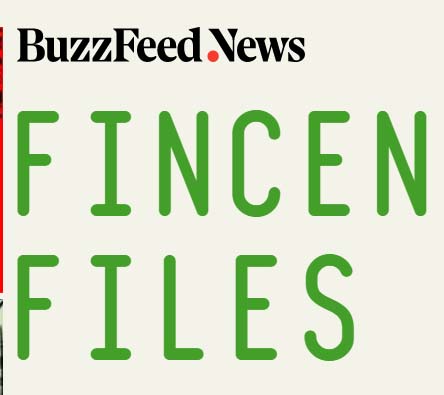
BuzzFeed, the internet news site, Sunday revealed a massive investigation about international banks‘ failures to act on documents filed with the U.S. Financial Crimes Enforcement Network (FinCEN) that report evidence or suspicions of money-laundering. Its assertions appear solid. But there is a back story related to BF Russophobia.
My first half-hour interview on this topic at The Backstory is here, at 1hr30min in. A second half hour begins 17minutes in on another Backstory broadcast.
FinCen is the the Treasury Department agency charged with combating money laundering, terrorist financing, and other financial crimes. It collects millions of banks’ suspicious activity reports, known as SARs. It makes them available to U.S. law enforcement agencies and other nations‘ financial intelligence operations.
When BuzzFeed revealed it had obtained several thousand SARs that showed how banks have colluded with crooks and how authorities in the U.S .and UK and elsewhere had done little or nothing about them, that had to be a good thing.
Because we know the governments’ anti-money-laundering programs are largely fake, feel-good operations. We know that the world banking system, run by the West, is a criminal enterprise that uses the offshore bank secrecy system to move the money of drug and arms traffickers, corporate thieves, bigtime tax evaders, kleptocrats. Because it brings money to Wall Street, real estate and the coffers of other western interests.
But a closer look at the backstory shows BF also had another agenda. On the one hand it showed this as an operation run by the Western banking system and governments. But then the articles it wrote about bad guys using the system were connected largely to governments the U.S. doesn‘t like, especially Russia, Iran, Sudan, others.
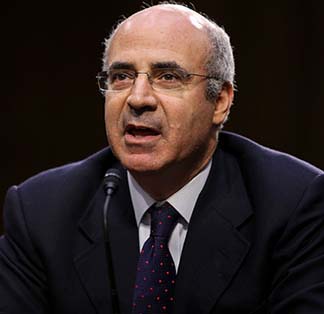
No focus on American banks, big focus on Russians and other U.S. deep state targets. Where are the stories about the U.S. and European crooks? Citibank, the posterchild for bank corruption?
Add to that BuzzFeed promoting a major William Browder fake story to promote his campaign to block Russia from collecting $1 billion of evaded taxes, illicit stock buys and the loot from a Treasury fraud.
How did BF get the SARs?
According to BF: Congressional committees requested them. A person familiar with the matter blew the whistle to multiple members of Congress. Unless you think someone from FinCEN passed them to BF. Ben Hallman of BF partner ICIJ (International Consortium of Investigative Journalists) also notes that a former U.S. Treasury official pleaded guilty in January to disclosing FinCen docs.

The leaker was Natalie Mayflower Sours Edwards, a former senior adviser at FinCEN. The Justice Department said, “The illegally disclosed SARs pertained to, among other things, Paul Manafort, Richard Gates, the Russian Embassy, Mariia (sic) Butina, and Prevezon Alexander.” The latter is a New York City condominium owned by Prevezon, the real estate holding company sued by the Justice Department based on fake claims by William Browder that it had received money stolen in a tax refund fraud against the Russian Treasury. As the Justice Department could never prove that, it gave up the case and settled with Prevezon.
The case is not mentioned in the BuzzFeed articles. Based on the targets, she was a Russophobe. Still, there‘s no evidence of a connection to the massive revelation of FinCEN SARs, which was a huge project, much larger than her targets.
BF published eight articles. What banks were mentioned? Will Fitzgibbon, head of the ICIJ project, says they dealt with only a small number of the SARs. Asked if there was selective leaking, he replied most SARs were not substantial enough to tell stories.
From BF: Four U.S. banks in one case: “Bank of America, Citibank, JPMorgan Chase, American Express, and others collectively processed millions of dollars in transactions for the family of Viktor Khrapunov, a former Kazakhstan mayor, even after Interpol issued a Red Notice for his arrest.” He was convicted in absentia on charges including bribe-taking and defrauding the city through the sale of public property
Two U.S. banks noted here: “even after they were prosecuted or fined for financial misconduct, banks such as JPMorgan Chase, HSBC, Standard Chartered, Deutsche Bank, and Bank of New York Mellon continued to move money for suspected criminals.”
But the focus in BF‘s eight detailed articles on banks were devoted to the British HSBC and Standard Chartered, the German Deutsche Bank, and a Russian VEB bank. No Americans.
Standard Chartered dealt with a Dubai company later accused of laundering cash on behalf of the Taliban and processed hundreds of millions of dollars for companies it suspected were circumventing sanctions against Iran.
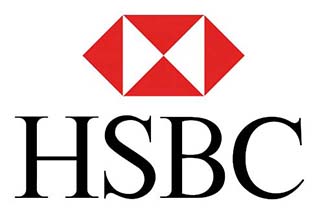
HSBC‘s Hong Kong branch helped a bigtime Ponzi schemer. Hong Kong began transferring money for a customer called Trade Leader Corporation Limited which would reportedly emerge in the so-called “Russian Laundromat” to funnel billions of illicit dollars through banks in Eastern Europe.
There‘s another article that gives you another way to analyze these documents. Maybe it was a way for BuzzFeed to do a favor for a good friend, convicted tax cheat and conman William Browder.
BF says a company called Financial Bridge was at the center of the mirror trading network, which by 2011 was funneling hundreds of thousands of dollars to a group of organized criminals the U.S. government sanctioned for drug smuggling, human trafficking, and violence in Russia and around the world. Using Deutsche Bank, money launderers who controlled a network of anonymous companies would buy shares in Russia and sell the stock to one of the European shell companies they owned. It turned the rubles into dollars and other currencies. The system allowed criminals to move profits undetected. Russian authorities suspended Financial Bridge‘s trading license on suspicion of money laundering.
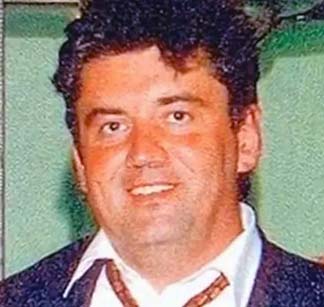
Then BuzzFeed takes a major hit to its credibility with a fake story about Alexander Perepilichnyy, a Russian financial operative who was an asset of mega-tax cheat and conman William Browder. See this.
An entire article is devoted not to a bank but to a fake news invention by Browder, the story of Alexander Perepilichnyy. From a villain, BuzzFeed turns him into a hero.
BuzzFeed: He Was At The Heart Of Two Of The Biggest Dirty Money Scandals In History. These Are His Secrets.
“November 2012, One of the Financial Bridge‘s owners, a Ukrainian financier named Alexander Perepilichnyy, dropped dead during a jog outside his home on the outskirts of London. Two weeks after he died, it was revealed that Perepilichnyy was linked to a multimillion-dollar tax fraud and had fled Russia, blowing the whistle on the scam.”
That is a lie. He moved money from a client out of Russia, but there is no evidence that money was linked to a $230-million tax refund fraud against the Russian Treasury. And he didn‘t blow the whistle on anything.
BuzzFeed writes: “After Alexander Perepilichnyy dropped dead while jogging outside of London, US intelligence concluded that he was likely “assassinated on direct orders” from Russian President Vladimir Putin “or people close to him.” Any link to that conclusion? No. Why, after Russia suspended his company‘s license for moving cash for criminals, would Putin do that? Likely is spook-speak for U.S. intelligence that has no evidence, just made it up. Which is what it does. But even fake stories ought to have logic.
BuzzFeed said, “Perepilichnyy had exposed the Magnitsky fraud, a $230 million tax scam by corrupt Russian government officials two years before, which became a flashpoint in US–Russian relations and led to sanctions against Russian officials.”
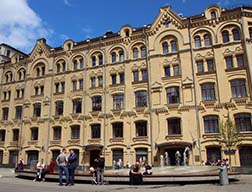
Quick summary: In a scam involving collusive lawsuits, Browder‘s shell companies pretended they had to pay out all their year‘s profits and request refunds of their taxes. The tax-refund fraud. The scam was organized by Browder with his tax accountant Sergei Magnitsky, who was named by the deal‘s key operative Viktor Markelov in the trial that sent Markelov to prison.
Browder would claim the shells were stolen, but evidence raises questions about that. His trustee HSBC said in July 2007 it needed $7 million for legal fees to get back stolen companies, but Browder said he didn’t know they were stolen till October.
Indeed, Perepilichnyy was linked to a Russian bank that moved the stolen money. But the scam was first revealed by a Russian, Rimma Starova, the figurehead director of a shell company that took over the companies. Then reported by the NY Times. And Vedomosti.
The victim of the scam was the Russian Treasury, though Browder first lied to the Financial Times that his companies had been targeted. Later he admitted his companies had no assets. For more details go here.
BuzzFeed writes: “Perepilichnyy knew about the scam, because he had facilitated it, helping to launder the stolen funds into Swiss bank accounts. He worked with all kinds of dubious clients, from the alleged ringleader of the Magnitsky fraud to funders of Syria‘s Assad regime, which has used chemical weapons on civilians.” Photo caption: “Bill Browder helped Alexander Perepilichnyy expose the Magnitsky fraud, before Perepilichnyy‘s death.” Didn‘t BuzzFeed read the NYTimes story?
Here‘s what really happened.

Perepilichnyy had been handling finances for a Russian investor, and when he lost his client‘s money, he fled Russia for the UK. Browder, always on the lookout to connect his $230-million tax-refund fraud to Russian government enemies, befriended Perepilichnyy and got him to file charges (never made public) with Swiss authorities. Perepilichnyy needing support after his flight from Russia, thereby paid off his new benefactor. Now years later, the Swiss have never brought charges against anybody. When I contacted Swiss authorities, the 2017 response from Linda Martina Studer of the Office of the Attorney General indicated no charges were imminent.
Translation: nothing was happening with the charges of nine years ago, because they were fake. Curiously Browder calls Perepilichnyy “the whistleblower” on the tax refund fraud, though Browder has insisted for years (without evidence) that Magnitsky was the “whistleblower.”
Then another curiosity.
BuzzFeed says: “After Perepilichnyy transformed himself from a money launderer to a whistleblower, Financial Bridge did not disappear ” instead it found a new life in the criminal underworld. In October 2012 ” a month before Perepilichnyy‘s death ” it was taken over by two anonymous shell companies.”
Wait a minute. So BuzzFeed is saying that after Perepilichnyy transformed himself from a bad-guy money launderer to a good-guy whistleblower, Financial Bridge did not disappear ” instead it found a new life in the criminal underworld. Really? In October 2012 ” a month before Perepilichnyy‘s death ” it was taken over by two anonymous shell companies. Hey, BuzzFeed, what kind of whistleblower is that?

BuzzFeed says that, “Soon afterward Financial Bridge informed another bank it held accounts with, Danske Bank, that it had two new “beneficial owners,” records obtained by L‘Espresso and ICIJ show. One was a security consultant named Igor Marakin. U.S. authorities have linked a company he controls to the Russian mafia.”
WHAT! This terrific “whistleblower” is still a money launderer, working with the criminal underworld! Then he shifts ownership to two anonymous shell companies. All the while Perepilichnyy is working closely with Bill Browder. Hmmm.
The article concludes: Was Perepilichnyy assassinated and, if so, was that murder linked to his disclosures of Russian money laundering? “In 2017, a BuzzFeed News investigation revealed that the American intelligence community had “high confidence” that Perepilichnyy was assassinated by agents linked to Russia.”
Investigation? You mean the intel guys told you that. Any details? As we know, “high confidence” means “we don‘t have any evidence.” BuzzFeed says, “The coroner‘s investigation, which had been held up for years by UK government requests to keep information about his death secret, ultimately said that Perepilichnyy “likely” died from natural causes but that it was not possible to rule out that he was killed.”
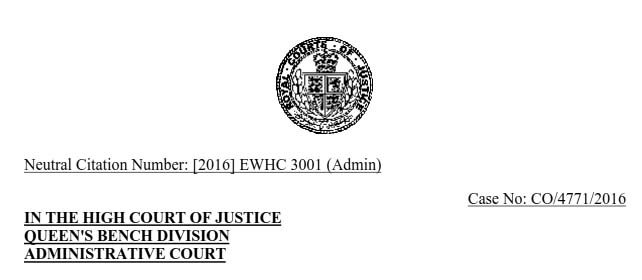
No, in fact the inquest evidence is quite solid. No evidence of murder. Of course, Browder was promoting the story that Perepilichnyy was poisoned by a toxic plant. (Anytime a critic of Putin dies, Browder declares he was murdered.) That was one reason for the delay. Which also led to a long delay on Perepilichnyy’s widow being able to collect on his life insurance for her and her child.
In this case, Reuters said: “No plant toxins found in stomach of dead Russian whistleblower: UK scientist.” And Financial Times: Coroner finds wealthy Russian died of natural causes. Financial Times: Inquest finds no plant toxins in Russian whistleblower. Didn’t BuzzFeed reporters see that? Or did they just take Browder’s dictation?
There are more indications BuzzFeed’s anti-Russian hit job.
About FinCEN, BF says the agency compiles a report called “Kleptocracy Weekly” that summarizes the dealings of foreign leaders such as Russian President Vladimir Putin. Evidence please! Don‘t make such charges unless you link to a report which includes more than the usual “we assess.” Intel-speak for we are attacking an enemy but alas we have no evidence, so we’re making it up. And don’t bother to mention the names of foreign leaders who have actually been tried and convicted of financial crimes. BuzzFeed aligns with the deep state goal to get the Russians.
BF writes that Russian bank VEB has long operated in the United States ” despite dozens of suspicious activity reports outlining concerns that it was a threat to national security. American authorities allowed the Russian bank ” whose board used to be chaired by Vladimir Putin ” to operate in the U.S. despite a paper trail that outlined concerns it was a threat to national security. Please tell us about the paper trails and other dirty stuff you allude to.
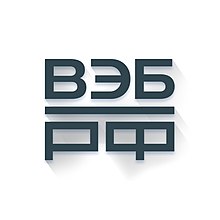
A state-financed bank to boost the Russian economy, VEB is controlled by President Putin‘s innermost circle. Igor Shuvalov, former Russian deputy prime minister, oversees the bank as its chair. Its former CEO was Sergey Gorkov, a graduate of Russia‘s intelligence academy. It’s a state bank. Why is BF surprised the board chairs are government officials?
Declaring that there was “clear and compelling evidence” Assad had used chemical weapons against the Syrian population, the [U.S.] senators urged the government to sanction VEB. The Treasury didn‘t act. Of course, it‘s been proved that claims of use of chemical weapons are fake, created by the anti-Assad U.S.-financed White Helmets.
Another VEB subsidiary, Genetechma Finance Limited, came under scrutiny for its links to possible arms sales. Genetechma had told Barclays Bank that it was buying $34.6 million worth of helicopters from a Russian state-owned defense contractor and intended to sell them to a leasing firm based in Moscow.
But was sold to a UAE-based aviation company which turned out to be the “general agent” for an aviation manufacturing and repair complex in Sudan. That complex was a joint venture between the then-sanctioned North Sudanese government and Russian Helicopters, a defense firm that produces aircraft for both civilian and military use. Not surprising, it‘s how arms sales are often done. See how the West used offshore cutouts to send arms to Saddam.
[And note that the focus of BF is heavy on deals involving U.S. political targets such as Iran, Russia, Sudan.]
VEB continues to operate in the United States. As we know Treasury sanctions Russia at the drop of a hat… so why is it protecting a Russian bank? The officials in the U.S. Justice Department and Treasury are either corrupt or very very stupid.
And money from [this] looted Russian bank where Vladimir Putin‘s cousin sat on the board was also filtered into the network, records show. Obviously Putin directs or monitors his cousin. (This guy is in charge of so many nefarious deals he must never sleep!)

Mass surveillance
Now, a very interesting point is made about mass surveillance.
In 2017, when U.S. congressional committees began investigating the last presidential election and other matters, they, too, turned to the Treasury Department database. They requested SARs on Deutsche Bank, which had loaned Trump money; Christopher Steele, the former MI6 agent who wrote the so-called Trump dossier; an array of Russian oligarchs; Trump‘s former campaign chairperson Paul Manafort; and even a small casino in the Pacific run by a former Trump employee. All told, they were looking for information on more than 200 entities.
Michael German, a former FBI special agent who is a national security and privacy expert, is quoted as saying that after 9/11, the SAR program became more about mass surveillance than identifying discrete transactions to disrupt money launderers.”
He said, The data is used like the data from other mass surveillance programs. Find someone you want to get for whatever reason then sift through the vast troves of data collected to find anything you can hang them with.
What should be done to catch money-launderers, not political enemies?
Offshore bank and corporate secrecy enabled by the western banking system and protected by western governments allows criminal groups to hide behind shell corporations, registered with no identifying details about their ownership, and slide the proceeds of their crimes into the global financial system.
BF says companies should be required to disclose their owners to the Treasury Department, rather than allowing people to hide behind a shell company. After it has just explained how Treasury ignores widespread criminality?
New York federal judge Jed Rakoff went further: “Under U.S. law, a bank that engages in money laundering can literally be forced out of business by the government, and it is kind of surprising that government hasn‘t taken that step, given the obvious deterrent effect it would have.”
Dear Judge, don’t be so na¯ve. The dirty money is invested, it fuels the stock market, it bids up real estate. It brings in the cash. The people who run the western governments like it.
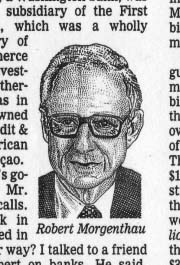
I once interviewed Robert Morgenthau, New York District Attorney from 1975 to 2009, for the Wall Street Journal. He told me, “The U.S. could say we won‘t permit foreign banks to open branches in New York if they insist on bank secrecy. We could say: You can‘t do business in this country.”
It‘s the only answer to the international money-laundering epidemic. But the western government and intelligence officials who collude in the crooked system will never do it.


Pingback: Links 9/25/2020 | naked capitalism
Pingback: 20 fake US media articles on the Browder Magnitsky hoax and one honest reporter from Cyprus : The Komisar Scoop